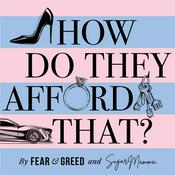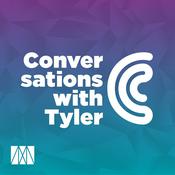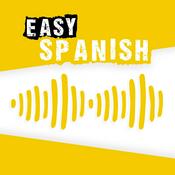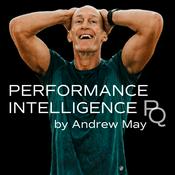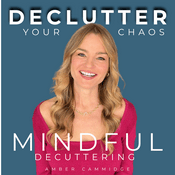12 episodes
- Summary
In this Season Two opener of Chalk Dust, Rebecca Birch and Dr Nathaniel Swain unpack what it means to start the year “right” through classroom routines that are warm, efficient, and culturally responsive. Drawing on classroom videos from AERO, they analyse entry routines, explicit logistical instructions, and minimally invasive behaviour corrections (the look, gesture cues, deliberate pauses, proximity). Across primary and secondary examples, they emphasise that strong routines aren’t about cold compliance; they are about building trust, reducing chaos, and freeing up attention for learning. The episode closes with a useful tension: aiming high while avoiding performative perfectionism—being yourself, staying firm, and focusing on the active ingredients that make routines work.
Mentioned resources and explainers
AERO (Australian Education Research Organisation)
AERO provides evidence-informed guidance and classroom video libraries showcasing effective practice. In this episode, Rebecca and Nathaniel use several AERO clips as case studies for entry routines, instruction delivery, and behaviour support.
Entry routines
The predictable sequence for when students arrive: greeting, expectations, materials, and immediate settling. Strong entry routines reduce transition friction, increase time-on-task, and communicate calm authority without needing lots of talk.
Checks for Understanding (CFU) in routines
Quick prompts that verify students can repeat or enact steps (for example: “What’s the first thing?”) before movement begins. CFUs prevent students from wriggling and prematurely moving off, especially when there are multiple steps.
Nonverbal corrections
Low-disruption cues (a look, a hand signal, finger to lips, a pause) used mid-instruction to redirect behaviour without breaking lesson flow or escalating attention to the behaviour.
Proximity
A minimally invasive management move: the teacher continues teaching but shifts closer to off-task students. Done well, it communicates monitoring and support without public correction.
Circulation and scanning
The practice of “working the room” with purpose: pausing to scan, moving to hotspots first, keeping sightlines open, and avoiding turning your back on the class.
Cultural responsiveness: shame and psychological safety
The episode highlights that some corrections can inadvertently shame students. Subtle moves (pause, name + “thank you”, neutral tone) maintain belonging and reduce escalation—particularly important in contexts where shame has cultural weight.
Teacher presence
Visible leadership means being positioned well, monitoring, and signalling that learning is the priority. The discussion includes a practical nuance for early years settings where being physically at the students’ level can be appropriate.
“Strong Voice” (Teach Like a Champion)
Nathaniel links self-interruption and deliberate pausing to the idea that teachers can pause mid-sentence to signal “we’re not ready yet” without lecturing or escalating.
“Pastore’s Perch”
A positioning idea: standing at a room edge/corner can improve sightlines and scanning compared with standing in the middle. Rebecca names it explicitly and suggests it as a useful practical heuristic.
Listen or view, and support our work
📨 Substack — sign up
🍏🎧 Apple Podcasts — like, review and follow
🎵💚 Spotify — follow and rate
📺🔔 YouTube — subscribe and like
✍️ Rebecca’s Substack — read more
✍️ Nathaniel’s Substack — read more
Thanks for listening to Chalk Dust! Share with a colleague who enjoys evidence-informed teaching.
Takeaways
* Routines aren’t about being harsh; they create safety, predictability, and efficiency so learning can happen.
* Greeting at the door can do double duty: relationship-building plus immediate, calm expectation-setting.
* When instructions have multiple steps, holding movement until “when I say go” reduces chaos and keeps attention to the end.
* CFUs work beautifully for routines: brief recaps (“What’s first?”) prevent confusion before students transition.
* Nonverbal corrections protect lesson flow and psychological safety, particularly when students are sensitive to public attention or shame.
* Proximity is an underrated intervention: it redirects without stopping teaching or spotlighting a student.
* Scanning and circulation are expert skills that develop with practice and observation; novices often “look” without noticing what matters yet.
* Education support staff are most powerful when routines are genuinely shared and seamless, not “helper on request”.
* Teacher presence matters: being up, positioned well, and visible supports both behaviour and momentum—without needing to raise your voice.
* Starting the year well means balancing high expectations with authenticity; aim for strong active ingredients, not impossible standards.
Keywords
classroom routines, entry routines, behaviour management, nonverbal corrections, proximity, circulation, scanning, checks for understanding, teacher presence, psychological safety, culturally responsive practice, AERO classroom videos, explicit instructions, start-of-year teaching, education support collaboration
This is a public episode. If you would like to discuss this with other subscribers or get access to bonus episodes, visit chalkdust.media - Summary
In this episode of Chalk Dust, Rebecca Birch and Nathaniel Swain are joined by educator, designer, and author Peps Mccrea, Director of Education at Steplab and writer of the High Impact Teaching series. Together, they watch and unpack classroom footage from two outstanding UK teachers—Primary English teacher Isla Lago and science teacher Pritesh Raichura.
The conversation explores why these lessons work so well: sharply defined routines, responsive checking for understanding, efficient use of visualisers, and the art of keeping teacher talk concise without losing warmth or personality. Peps explains how practices such as cold call, turn-and-talk, whiteboard checks, and scripting work together to build attention, motivation, and trust.
Across both classrooms, the trio highlight how routines reduce cognitive load for students, free up teacher bandwidth, and create an environment where high expectations feel safe rather than authoritarian. They discuss how warmth and structure complement each other, why error culture requires trust, and how teachers can identify a small set of core routines to declutter and refine.
This episode shows, with real footage, how clarity, consistency and care create classrooms where all students—especially the most vulnerable—can thrive.
Mentioned resources and explainers
Peps Mccrea’s High Impact Teaching series
Short, practical books on attention, motivation, memory, and habits in classrooms.
Steplab
A coaching and professional learning platform that provides video examples, structured steps, and instructional frameworks.
Culture of Error (TLAC)
A classroom norm where mistakes are welcomed as learning opportunities, supported by teacher warmth and trust.
Cold Call, Turn & Talk, Mini-Whiteboard CFU
Key techniques for increasing global attention and making student thinking visible.
Scripting & Economy of Language
We’re not talking about Direct Instruction. We’re talking about planning key questions, definitions, and phrases to reduce waffle and sharpen explanations.
Listen or view, and support our work
📨 Substack — sign up
🍏🎧 Apple Podcasts — like, review and follow
🎵💚 Spotify — follow and rate
📺🔔 YouTube — subscribe and like
✍️ Rebecca’s Substack — read more
✍️ Nathaniel’s Substack — read more
Takeaways
• Routines free up attention—for teachers and students.
• Thinking time matters; most teachers give far too little.
• Cold call works because it increases whole-class accountability.
• Concise teacher talk strengthens focus and reduces cognitive overload.
• Whiteboard CFU is fast, humane, and more reliable than exercise books.
• Warmth balances structure: students trust teachers who challenge and support.
• By having greater consistency in norms and routines, more cognitive load is freed up for teachers and students alike.
• A culture of error only works when students feel genuinely safe.
• Visualisers simplify teaching, keep eyes on students, and reduce friction.
• Identify a small set of routines, then practise them until they’re automatic.
• Shared schoolwide routines elevate autonomy by removing behavioural friction.
Keywords
Steplab, Peps Mccrea, explicit teaching, classroom routines, checking for understanding, mini whiteboards, cold call, turn and talk, culture of error, economy of language, scripting, instructional coaching, visualiser teaching, behaviour expectations, motivation, attention, habits, responsive teaching, teaching practice, high expectations.
This is a public episode. If you would like to discuss this with other subscribers or get access to bonus episodes, visit chalkdust.media - Summary
In this episode of the Chalk Dust podcast, Nathaniel Swain and Rebecca Birch are joined by Teach Well General Manager, Katie Webster, and Western Australian primary teacher Kaitlin Rowan to explore the transformative impact of instructional coaching and deliberate practice on classroom teaching.
Through a before–and–after analysis of Kaitlyn’s filmed lessons, the conversation highlights how building routines for full student participation elevates learning, strengthens classroom culture, and accelerates teacher development. The hosts unpack practical techniques from the Teach Well Masterclass Series, including choral response, whiteboards, calling non-volunteers, and gesture-based cues.
The discussion reflects on why explicit instruction routines matter for long-term memory, how production effect and rehearsal strengthen learning, and the role of coaching cycles in helping teachers build fluency and confidence. Importantly, Kaitlyn shares the emotional journey of recording her early practice, receiving targeted feedback, and embedding techniques over time.
The episode reinforces that expert teaching emerges through sustained professional learning, high expectations, and a supportive culture where teachers try, reflect, and refine.
Mentioned resources and explainers
Teach Well Masterclass Series
A structured development program supporting teachers to embed high-impact explicit-instruction routines with coaching cycles, rehearsal, feedback, and classroom filming.
Choral Response & Cueing
A technique to promote full participation and rehearsal, improving retention and automating core knowledge. Linked to production effect research and cognitive load theory.
Mini-whiteboards & ‘Hover then Chin-it’
Interactive formative assessment routines ensuring real-time visibility into student thinking. Supports responsive teaching and prevents passive learners.
Cold Calling / Non-volunteers
A technique to ensure high engagement and accountability, normalising contribution and shifting classroom culture towards full participation.
Generative Learning
Strategies that require students to produce responses rather than consuming information passively, improving schema development and transfer.
Explicit Instruction
A structured, teacher-led approach emphasising modelling, checking for understanding, guided practice, and independent practice. Related to Hollingsworth & Ybarra (EDI) and Teach Like a Champion.
Listen or view, and support our work
📨 Substack — sign up
🍏🎧 Apple Podcasts — like, review and follow
🎵💚 Spotify — follow and rate
📺🔔 YouTube — subscribe and like
✍️ Rebecca’s Substack — read more
✍️ Nathaniel’s Substack — read more
Thanks for listening to Chalk Dust! Share with a colleague who enjoys evidence-informed teaching.
Takeaways
* Teaching expertise evolves through deliberate practice, coaching, and reflection.
* Participation routines enable every student to think, respond, and rehearse.
* Production effect and rehearsal improve long-term memory.
* Coaching cycles accelerate teacher proficiency through targeted feedback.
* Whiteboards, choral response, and non-volunteers boost active engagement.
* Full participation is learnable: expectations plus routines create culture.
* Gestures and non-verbal cues streamline transitions and maintain pace.
* Formative assessment must be visible and actionable.
* High expectations are enacted through routines, not slogans.
* Classroom culture of safety supports risk-taking and learning from mistakes.
Keywords
explicit instruction, Teach Well, teacher coaching, participation routines, choral response, whiteboards, formative assessment, generative learning, classroom culture, cognitive load, production effect, instructional routines, teaching practice improvement, Chalk Dust podcast, education research, professional learning, teacher development, student engagement, high expectations
This is a public episode. If you would like to discuss this with other subscribers or get access to bonus episodes, visit chalkdust.media - Summary
In this episode of Chalk Dust, Rebecca Birch and Dr Nathaniel Swain are joined by Denarius Frazier, Regional Superintendent of Instruction for Uncommon Schools in New York City and Senior Advisor with the Teach Like a Champion team. Denarius, co-author of Reconnect: Building School Culture for Meaning, Purpose, and Belonging, shares how routines, feedback, and culture can transform classrooms into places of both rigour and belonging.
Together, they analyse footage comparing Denarius’ own classroom with that of UK teacher Matthew Gray, focusing on practices like narrating the lap, culture of error, and show-calling student work. They also examine a lesson from master teacher Julia Addeo to explore how expert teachers respond in real time to patterns of misunderstanding while maintaining high expectations and warmth.
Themes include how belonging is cultivated through competence, why predictability and shared routines lower cognitive load, and how monitoring and feedback can be systematised so every student experiences success during a lesson—not after it. The conversation bridges cognitive science and classroom craft, illustrating that belonging and excellence are not opposites but mutually reinforcing.
Mentioned resources and explainers
Teach Like a Champion 3.0
Doug Lemov’s updated framework underpins much of the discussion, including active observation, show call, and habits of attention.
Reconnect: Building School Culture for Meaning, Purpose, and Belonging
Co-authored by Denarius Frazier, this book explores how predictability, structure, and academic success foster genuine connection in schools.
Rosenshine’s Principles of Instruction
Referenced when Nathaniel and Rebecca note that “monitoring independent practice” must be more than wandering the room—it should be intentional, transparent, and coachable.
Daniel Willingham – Why Don’t Students Like School?
Denarius cites Willingham’s model of working memory to explain how predictable routines and planned responses prevent cognitive overload for both students and teachers.
Active Observation & Mastery Thresholds
Frazier outlines how teachers can respond to classroom data: reteach when mastery 80%. These heuristics help teachers act on evidence rather than instinct.
Listen or view, and support our work
📨 Substack — sign up
🍏🎧 Apple Podcasts — like, review and follow
🎵💚 Spotify — follow and rate
📺🔔 YouTube — subscribe and like
✍️ Rebecca’s Substack — read more
✍️ Nathaniel’s Substack — read more
Takeaways
• Belonging is built through competence, not just connection; students trust teachers who help them succeed.
• “Naming the lap” makes feedback purposeful and visible, showing students what excellence looks like as they work.
• The culture of error normalises mistakes as learning opportunities, building safety and inclusion through transparency.
• School-wide consistency in routines reduces chaos and cognitive load, especially for adolescents.
• Data-informed show-calls turn monitoring into responsive teaching, using student work as a mirror for collective growth.
• Expert responsiveness isn’t improvisation; it’s structured anticipation guided by mastery data.
• Classroom culture is the prerequisite for rigour: without predictability and attention habits, high-quality instruction cannot land.
Keywords
Denarius Frazier, Teach Like a Champion, Reconnect, Uncommon Schools, explicit teaching, Rebecca Birch, Nathaniel Swain, Chalk Dust podcast, classroom culture, belonging, competence, feedback, show call, culture of error, Rosenshine, active monitoring, responsive teaching, working memory, cognitive load, data-informed instruction, predictability, routines.
This is a public episode. If you would like to discuss this with other subscribers or get access to bonus episodes, visit chalkdust.media - Summary
In this episode of Chalk Dust, Dr Nathaniel Swain and Rebecca Birch are joined by John Hollingsworth, co-founder of DataWorks Educational Research and co-author of Explicit Direct Instruction: The Power of the Well-Crafted, Well-Taught Lesson. Known widely as the “Purple Book,” his work has shaped how teachers worldwide think about whole-class explicit teaching.
Together, the team analyse classroom footage from maths, English, and science lessons, reflecting on how expert teachers use strategies such as “I’ll come back to you,” gestures, non-volunteer questioning, and sentence frames. John unpacks what effective checking for understanding looks like, why aiming for “80% whole-class success then corrective feedback” leads to 100% mastery, and how explicit instruction is far from “chalk and talk.”
Themes include the role of choral response in normalising mistakes, how gestures and props strengthen memory, why teachers must “work the page” rather than read slides verbatim, and the motivational power of explaining lesson importance. John shares coaching insights from working in over 25,000 classrooms, emphasising structured processing time, randomisation, and pre-planned sentence stems.
Mentioned resources and explainers
Explicit Direct Instruction (EDI), the Purple Book
Hollingsworth and Ybarra’s foundational text on well-crafted lessons and whole-class explicit teaching.
Gestures and kinesthetic strategies
Not to be confused with learning styles or VAK! Gestures are most powerful when they clearly align with meaning, such as iconic or representational movements rather than random hand-waving. Learning is supported both when students produce gestures themselves and when they observe them from teachers or peers. The benefits are particularly strong with complex or abstract material, or when students have weaker verbal memory. Gestures also help by offloading some of the cognitive load, giving learners a visual or embodied way to grasp relationships that would otherwise be carried verbally.
Sentence frames and academic language
John’s recommendation is that teachers pre-write frames with academic vocabulary to ensure students orally rehearse complete, formal responses.
Motivation and rationale
The importance of telling students why they are learning something, linking lesson content to careers, tests, or future applications.
Listen or view, and support our work
📨 Substack — sign up
🍏🎧 Apple Podcasts — like, review and follow
🎵💚 Spotify — follow and rate
📺🔔 YouTube — subscribe and like
✍️ Rebecca’s Substack — read more
✍️ Nathaniel’s Substack — read more
Takeaways
* Explicit instruction is not “chalk and talk” but highly interactive, with student responses every 20–30 seconds
* Randomisation of questioning prevents teachers from being misled by only hearing from the same few students
* Gestures and props strengthen memory, even in secondary classrooms
* Checking for understanding should move beyond surface answers, supported by sentence stems and academic vocabulary
* Explaining lesson importance supports motivation and autonomy, linking learning to tests, careers, and real-world use
* Structured processing time—pair-share, justification, complete sentences—is essential for real learning
Keywords
explicit teaching, John Hollingsworth, Rebecca Birch, Nathaniel Swain, Chalk Dust podcast, Explicit Direct Instruction, Purple Book, checking for understanding, non-volunteer questioning, I’ll come back to you, whiteboards, sentence frames, academic language, gestures, props, motivation, rationale, structured processing time, pair-share, classroom coaching, work the page, adaptive teaching
This is a public episode. If you would like to discuss this with other subscribers or get access to bonus episodes, visit chalkdust.media
More Education podcasts
Trending Education podcasts
About Chalk Dust
Welcome to Chalk Dust, the podcast that gives you a front row seat into some of the best classrooms in the world. There are lots of great conversations about teaching and education happening around the world right now. There are already so many fantastic podcasts out there about evidence based practice, and we're so excited to bring you one more, but this one has a distinctive difference.
Each episode, Rebecca Birch and Nathaniel Swain break down real classroom footage to illuminate the moments that make great teaching great. Teaching is both a science and an art. There are proven techniques that we know to work, but applying them in real classrooms is where the complexity lies.
Our goal? To help you develop the eye of an expert observer, so you can see what makes lessons effective and apply those insights into your own teaching or coaching practice. chalkdust.media
Podcast websiteListen to Chalk Dust, How Do They Afford That? and many other podcasts from around the world with the radio.net app
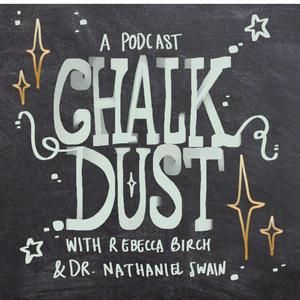
Get the free radio.net app
- Stations and podcasts to bookmark
- Stream via Wi-Fi or Bluetooth
- Supports Carplay & Android Auto
- Many other app features
Get the free radio.net app
- Stations and podcasts to bookmark
- Stream via Wi-Fi or Bluetooth
- Supports Carplay & Android Auto
- Many other app features


Chalk Dust
Scan code,
download the app,
start listening.
download the app,
start listening.


